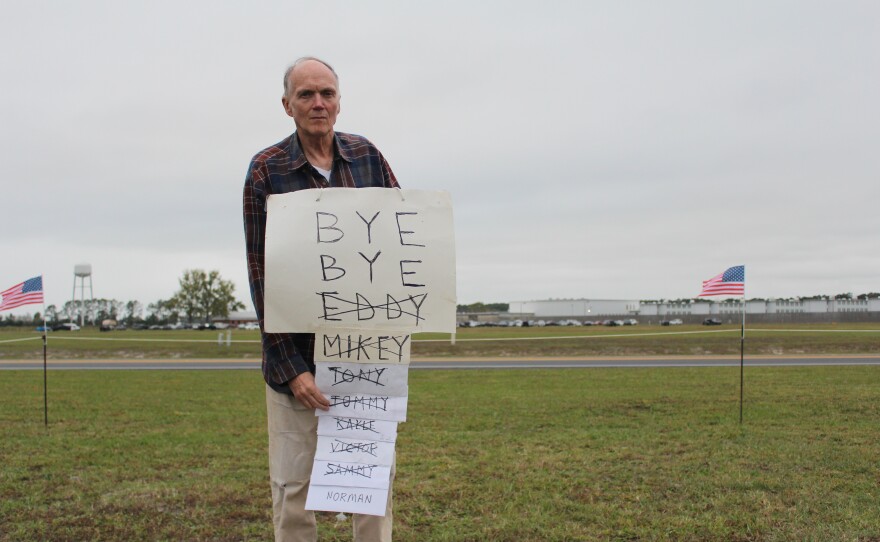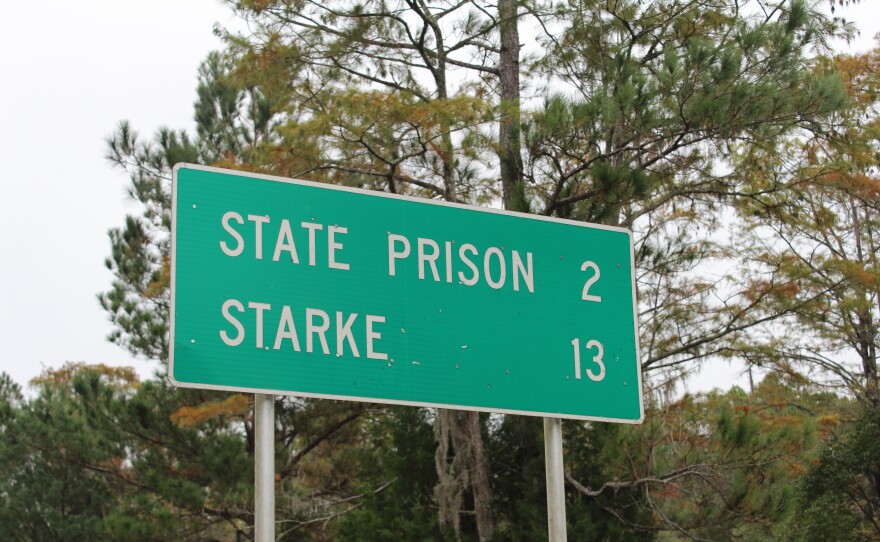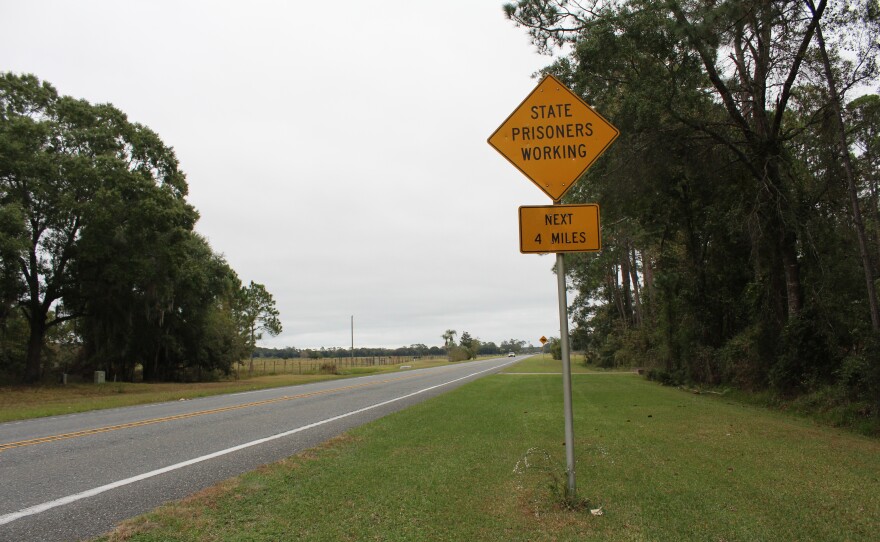RAIFORD, Fla. – Richard Randolph died by lethal injection Thursday at 6:12 p.m. inside the Union Correctional Institution. More than three decades ago, he was sentenced to death for the rape and murder of the manager of a Putnam County gas station during a robbery.
Randolph, 63, was Florida’s 17th execution this year, a count more than double the previous state record of eight within one year – and one expected to continue to climb. Two more executions are scheduled to be carried out in December.
The U.S. Supreme Court denied a stay of execution Thursday, just hours before his death.
For his last meal, Randolph chose a cheeseburger with fries, eggs, a soda and ice cream.
He declined to meet with a spiritual advisor, though Putnam County court records indicate he converted to the Muslim faith and changed his name to Malik Abdul-Sajjad to find “a meaningful spiritual path” for the remainder of his life. He worked in the prison as a “houseman.”
Randolph had no last words.
“The victim’s family wanted me to thank the governor on their behalf,” said Jordan Kirkland, a spokesman for the Florida Department of Corrections. Though they witnessed the execution, their identities were not released.
Randolph’s crimes were described in Putnam County court records:
On the morning of Aug. 15, 1988, Randolph peddled his bicycle to a Putnam County Handy-Way store. Armed with just a toy gun, he aimed to steal about $1,000 from the store’s safe.
At the time, he was 27 years old and had been honorably discharged from the U.S. Army, where he developed an addiction to crack cocaine. He was also adopted at a young age and suffered an abusive childhood.
Randolph previously worked at the Handy-Way he was biking to, already familiar with daily staff routines. However, he didn’t anticipate 62-year-old Minnie Ruth McCollum, his former manager, would catch him.
He was going to sneak inside, grab the money and leave before McCollum was finished checking gas pumps outside, but his plan was derailed when she returned too quickly. The two struggled before Randolph forced her into a back room and beat her until she “quieted down.”
During Randolph’s failed effort to access the safe, McCollum suddenly moved and shrieked. He followed the noise, yanked the drawstring out of his sweatshirt and unsuccessfully strangled her with it. As McCollum kept struggling, Randolph stabbed her multiple times.
To make it appear that “a maniac” was responsible for the crime, he raped her.
Randolph then tore down the store’s security camera, took McCollum’s keys, stole lottery tickets and put on a Handy-Way smock.
Two store employees and a customer saw Randolph lock the door and commandeer McCollum’s car. Once he left, they peered through the window, seeing security camera wires hanging out of a tipped trash can and the store in disarray. They called the police, who discovered McCollum barely alive.
She arrived at the hospital comatose and died six days later.
After fleeing, Randolph drove to his then-girlfriend’s home, admitting to her that he committed the Handy-Way robbery and attack on McCollum. He then made his way to Jacksonville, where he was arrested.
Randolph confessed his actions in detail to Putnam County detectives shortly after, according to court records.
Randolph was convicted of first-degree murder, armed robbery, sexual battery and grand theft of a motor vehicle. In 1989, a split jury sentenced him to death in an 8-4 vote.
The lethal injection would cause Randolph to suffer a “torturous death,” said Joel Zivot, an Emory University School of Medicine professor. Zivot reviewed Randolph’s medical records and spoke with him over the phone Oct. 24 to help him switch his execution method, which was denied.
Randolph’s proposed stay of execution said he had been diagnosed with Lupus, among other health problems. Zivot said in an interview that Randolph’s condition was “ignored or underplayed or undertreated” in prison.
Randolph’s execution ensued “without incident,” Kirkland said. The Associated Press, whose reporter witnessed the death as a member of the media pool, said that his face slightly twitched before he began breathing heavily for a few minutes, after which he became unresponsive.
The motion proposed using a firing squad or different lethal injection drugs as alternatives to his execution method. However, since the state’s lethal injection protocol has been the same since 2017, the Florida Supreme Court wrote Randolph’s motion “was untimely, procedurally barred, and legally insufficient,” as it was filed just weeks before his execution.
Randolph also made multiple public records requests after his death warrant was signed, which the state struck down and deemed too last-minute.
“Minnie Ruth McCollum's family has been waiting for justice and closure for thirty-seven years. Randolph's motion must be denied,” a state circuit court wrote last month.
DeSantis signed a death warrant for Florida’s 19th execution of the year just two days ago, scheduling the death of convicted murderer Frank Walls for Dec. 18. Before then, Mark Geralds, another convicted murderer, is set to be executed Dec. 9.
___
This story was produced by Fresh Take Florida, a news service of the University of Florida College of Journalism and Communications. The reporter can be reached at rdigiacomorapp@freshtakeflorida.com. You can donate to support our students here.







